I give prizes to my students, highly coveted ones that nobody wants.
M’s family is my primary supplier of odds and ends: handkerchiefs, origami, coins and bills from foreign lands, old Coke bottles, highly depreciated sports equipment, old whatever. I’ve also found dandies like athletic directors’ jackets, satchels, castaway shirts in the cupboard contents left behind by previous teachers in the classrooms I’ve occupied. And there was one year when I talked Target into providing snack prizes, but those lacked the unique, useless quality that makes my standard fare so appealing, if unwanted.
In spite of their knowing that the prizes are most likely something they really don’t want, many students throw themselves wholeheartedly my competitions in hopes of winning, and before making a prize presentation, I build suspense with a little speech about the yet unrevealed item’s appeal. The students lean forward in anticipation.
And then I give the prize to the winner.
“But I don’t want this,” says the student. “What am I supposed to do with it?”
“I’ll take it!” another student calls out. Before long, however, that student, too, and perhaps several others have, through coercive means and with great relief, passed the prize along.
 The most recent prize I awarded was one of two decrepit books published around 1880, in rather bad shape but still cool, antiquity considered. The class was, I think, a little in awe, and I wondered aloud if maybe the book was valuable.
The most recent prize I awarded was one of two decrepit books published around 1880, in rather bad shape but still cool, antiquity considered. The class was, I think, a little in awe, and I wondered aloud if maybe the book was valuable.
“You could try selling it on eBay,” I said. “Maybe it’s worth a lot.”
That night, worried that maybe I’d given away something that instead could have made me rich, I decided to see if the other book would sell on eBay.
“You know, if you had both books,” said M, “you’d probably be better off.”
“Rats,” I thought, and didn’t even bother listing it.
The next day, however, my luck changed. The student who’d won the book came to me before class. “Mr. C,” she said. “I really don’t want that book. It’s got mildew in it, and it’s falling apart. Can I trade it for another prize?”
“Well,” I tried to hesitate, “I really don’t ever exchange prizes–it’s against my prize policy–but I guess this one time I can. If you bring the book back, I’ll give you a different prize. But be forewarned: You probably won’t like your new prize any better.”
A day or two later, she’d received her Japanese handkerchief, and both books were listed on eBay for ninety-eight cents.
A week later they’d been sold to someone a few states away, for around $16 plus shipping, and I told the class about the sale. “See? My prizes are valuable.”
“It’s just $16,” someone said.
Another student asked, “How is the person who bought the books going to get them?”
“I’ll mail them,” I said.
“Oh,” she said. “I’ve always wondered how that works.”


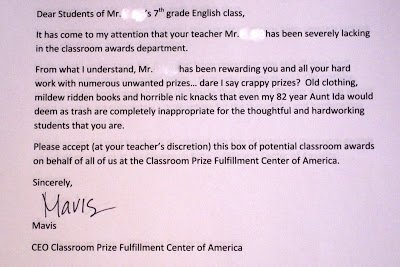
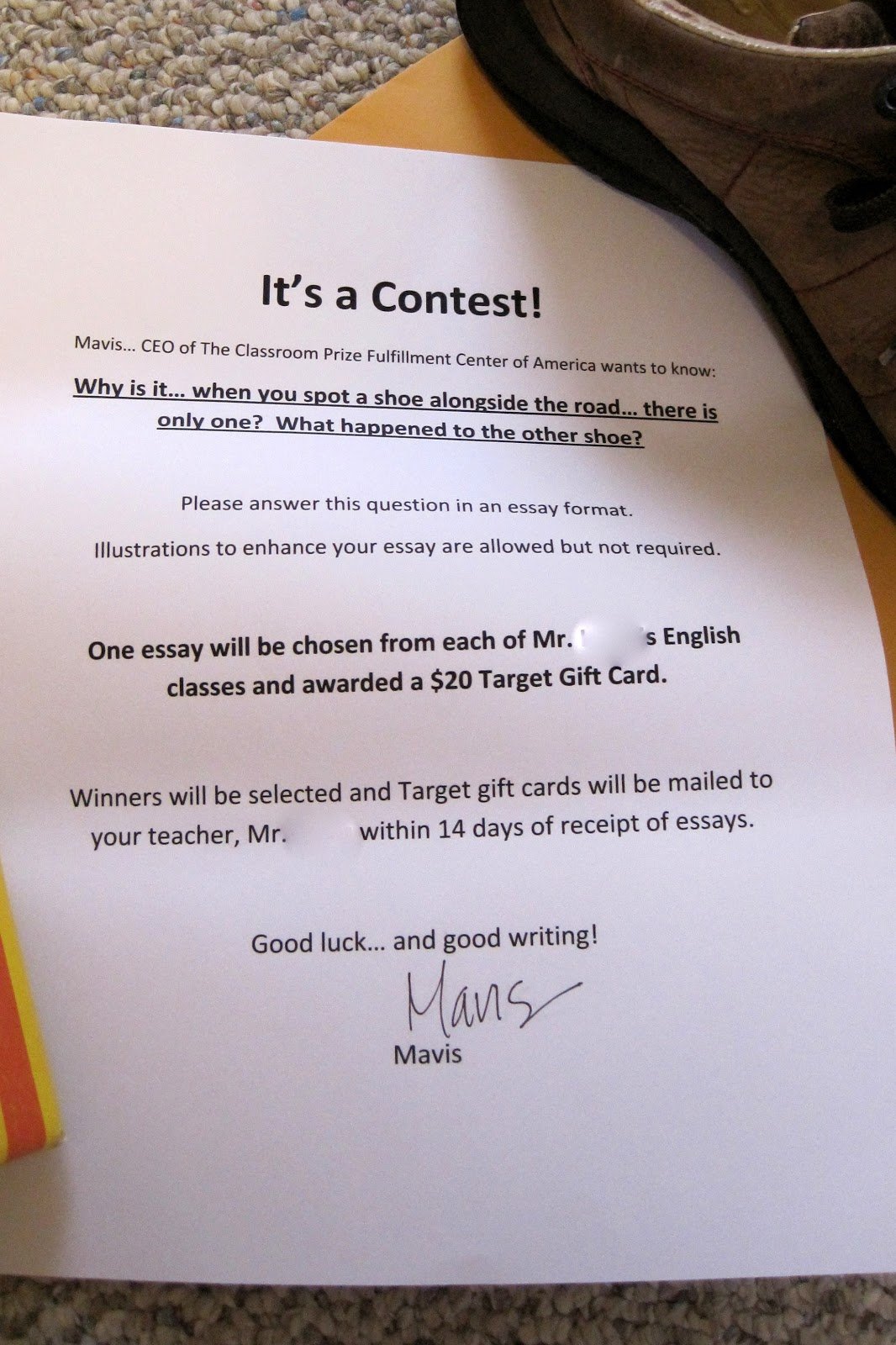

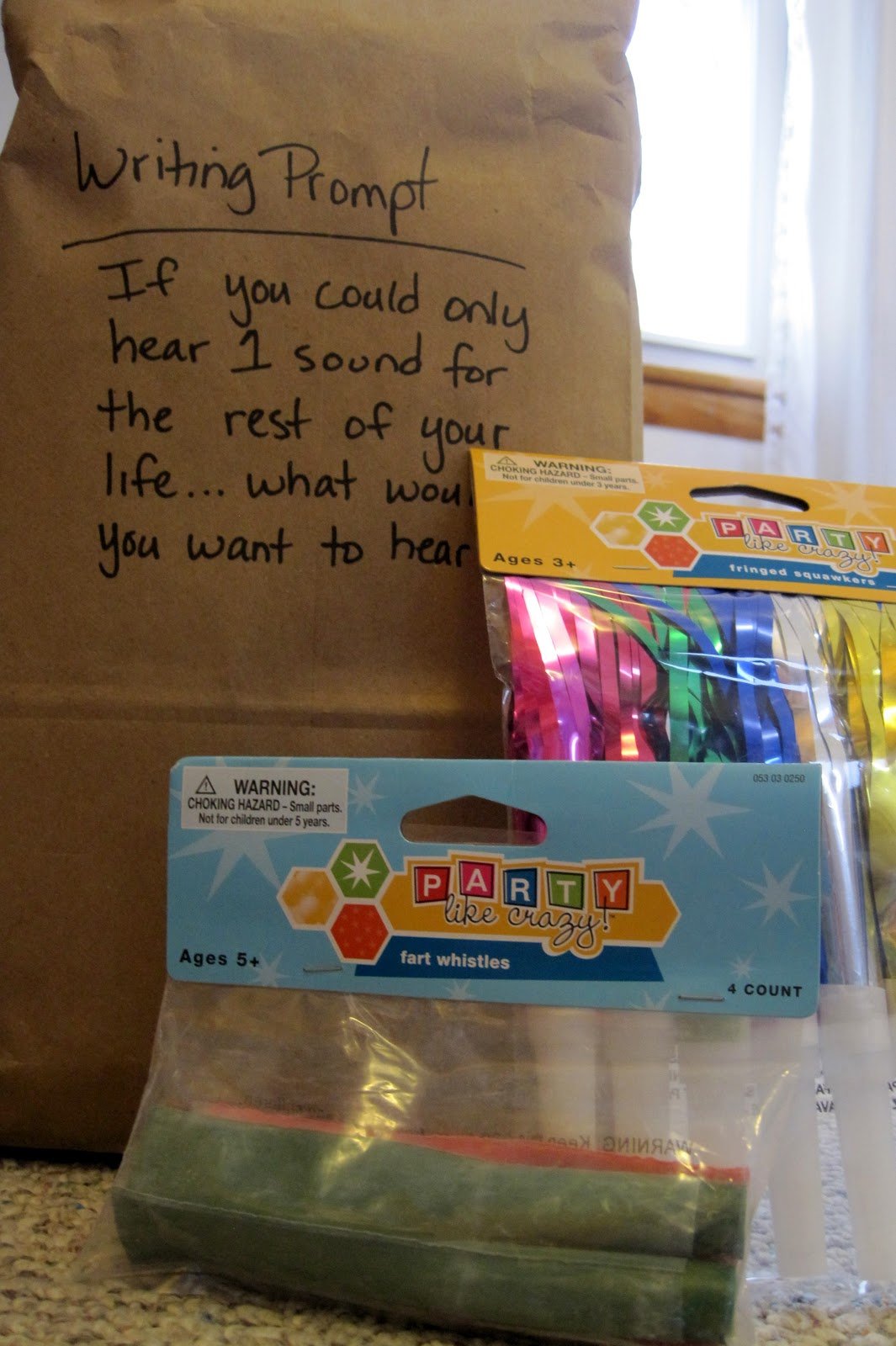


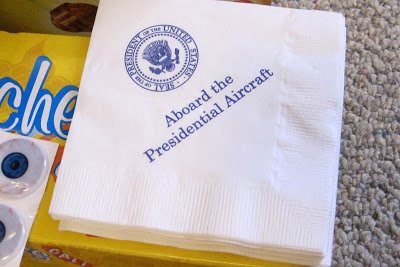
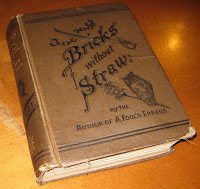
 The most recent prize I awarded was one of two decrepit books published around 1880, in rather bad shape but still cool, antiquity considered. The class was, I think, a little in awe, and I wondered aloud if maybe the book was valuable.
The most recent prize I awarded was one of two decrepit books published around 1880, in rather bad shape but still cool, antiquity considered. The class was, I think, a little in awe, and I wondered aloud if maybe the book was valuable.